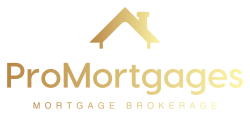Variable vs Fixed Mortgages Rates: What’s the Right Choice for You in Canada?
Choosing between a variable and fixed-rate mortgage is one of the most significant decisions you’ll make when buying a home in Canada. Each option comes with its own set of advantages and considerations, making it essential to understand the differences between them before making your decision. In this blog post, we’ll explore the nuances of variable and fixed mortgage rates in Canada to help you determine which option is best suited to your financial goals and preferences.
Understanding Variable Mortgage Rates
Variable-rate mortgages, as the name suggests, have interest rates that can fluctuate over time. These rates are typically tied to the lender’s prime rate, which in turn is influenced by the Bank of Canada’s overnight lending rate and other economic factors. Variable-rate mortgages are often expressed as “prime plus/minus X%”, where X% represents the discount or premium applied to the prime rate.
One of the key advantages of variable-rate mortgages is their potential for lower initial interest rates compared to fixed-rate mortgages, particularly in a low-interest rate environment. This can result in lower monthly mortgage payments and potentially significant savings on interest costs over the life of the loan. Additionally, variable-rate mortgages offer flexibility, as borrowers may benefit from declining interest rates if the economic conditions remain favorable.
However, variable-rate mortgages also come with a degree of uncertainty and risk. Since interest rates can fluctuate over time, borrowers may experience changes in their monthly mortgage payments, which can impact their budgeting and financial stability. In a rising interest rate environment, variable-rate mortgages can become more expensive, leading to higher monthly payments and increased financial strain.
To mitigate this risk, some variable-rate mortgages offer rate caps or limits on how much the interest rate can increase during each adjustment period or over the life of the loan. These caps provide borrowers with some protection against sudden rate hikes, but it’s essential to understand the terms and conditions of the mortgage agreement before signing.
Exploring Fixed Mortgage Rates
Fixed-rate mortgages, on the other hand, have interest rates that remain constant for the duration of the loan term, typically ranging from one to ten years or more. This means that borrowers know exactly what their monthly mortgage payments will be throughout the term of the loan, providing stability and predictability in budgeting.
One of the primary advantages of fixed-rate mortgages is their stability and peace of mind. Borrowers are protected from fluctuations in interest rates, regardless of changes in the broader economic environment. This can be particularly valuable during periods of economic uncertainty or when interest rates are expected to rise.
Fixed-rate mortgages are also well-suited to borrowers who prefer to lock in a consistent monthly payment and avoid the potential for increased financial strain associated with fluctuating interest rates. Additionally, fixed-rate mortgages may be suitable for borrowers who are planning to stay in their home for an extended period and want the security of a predictable payment schedule.
However, fixed-rate mortgages typically come with slightly higher initial interest rates compared to variable-rate mortgages, reflecting the lender’s risk of locking in a specific rate for an extended period. This means that borrowers may pay more in interest over the life of the loan compared to variable-rate mortgages if interest rates remain low or decrease over time.
Choosing Between Variable and Fixed Mortgages Rates in Canada
When deciding between variable and fixed mortgages rates in Canada, it’s essential to consider your financial situation, risk tolerance, and outlook on interest rate trends. If you prioritize stability and prefer the certainty of fixed monthly payments, a fixed-rate mortgage may be the best option for you. On the other hand, if you’re comfortable with some degree of uncertainty and believe that interest rates will remain low or decrease over time, a variable-rate mortgage could offer potential cost savings.
Ultimately, the decision between variable and fixed mortgages rates depends on your individual needs and preferences. It’s essential to weigh the pros and cons of each option carefully and consult with a mortgage advisor to determine the best fit for your specific circumstances. By understanding the differences between variable and fixed-rate mortgages rates in Canada, you can make an informed decision that aligns with your financial goals and helps you achieve your dream of homeownership.









 by Bhasha Infotech
by Bhasha Infotech